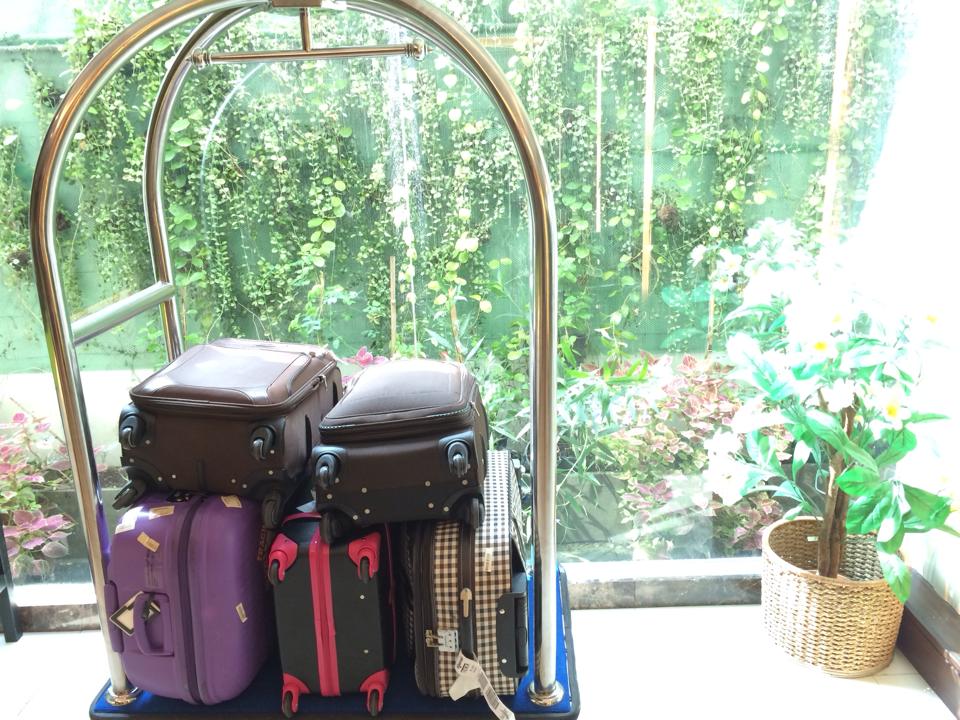Man Injured by Hotel Negligence Awarded Rs 10 Lakh: Here’s Why You Should Care
Almost all hotels make you sign a waiver form at the time of check-in, which absolves them from any responsibility upon your injury or worse,

Do you recall what you did the last time you checked into a hotel?
Usually, you are tired, sleepy or hungry and just give the person behind the counter your photo ID, scribble your signature on the form, and head up to your room as soon as possible.
Ashok Agarwal (name changed) a frequent traveller, did the same throughout his professional life. A person who spends almost 20 days a month in various hotels across the country, one can say that Ashok is quite an experienced customer.
He still recalls one of his stays at a hotel. It was April 2017, while on a business trip, that he was walking to the hotel’s restaurant to meet his colleagues. He had to pass through an open area near the swimming pool. The rains had made the path slippery, and the passage lights were not yet lit. In a rather unfortunate accident, Ashok slipped on the wet path, fell on his back and severely injured his spine. Nearly two years and multiple surgeries later, he is still in pain and suffering. He is now evaluating various legal options before him.
But why must he evaluate? Surely the facts are clear and the legal ramifications obvious? Not quite!
Did you know almost all hotels make you sign a waiver form at the time of check-in, which absolves them from any responsibility for your injury or worse, death. A waiver is the abandonment of a right and is either express or implied from conduct. The issue is that no one bothers to read the forms and ends up signing their lives away in a second.
Negligence vis-à-vis the Right to Sue
The principle of “negligence” means the failure to observe, for the protection of the interests of another person, that degree of care, precaution and vigilance, which the circumstances justly demand, whereby such other person suffers injury.
Negligence means a breach of duty to exercise due care expected of a reasonable, prudent person.

In the above incident, given that the rains had caused the path to get slippery, it was the duty of the hotel to ensure that it was cleared and that the passage was lit up to ensure that no customer crossing the path suffers an injury. Since the hotel was in breach of their duty to exercise due care, they could be held liable by a court of law.
A milestone verdict
In another adjudicated case, which is considered as a milestone verdict in consumer laws, the complainant was awarded a sum of Rs 9,33,400 along with Rs 10,000 towards the injuries he suffered.
Facts: In July 2005, 29-year-old Vinay Rajpal and his wife Ravina, checked into Park Hyatt Goa Resort & Spa, along with a marriage party of several guests. They were escorted to their room after completing the check-in formalities. While the room was comfortable, the Rajpals found the design of the bathroom peculiar.
Two days after having checked-in, Vinay met with an accident in the bathroom due to its faulty design and structure.

Photo Source: Pixaby
In his complaint, Vinay mentions how there were three steps to enter into the bathing area and a handle-bar to the right. Vinay slipped on the second step and fell on his face with great force, resulting in several fractures and injuries.
Several surgeries later, in 2007, Vinay sent a legal notice to the hotel, and the case was finally closed in 2012 with an order passed in his favour. The crucial factor here is that the case not only resulted in some compensation but also ensured other hotels paid more attention to their constructions – making it safer for us all.
So how to prove negligence?
Let us take the first-mentioned scenario of Mr Aggrawal to consider the various factors. To establish that there was negligence, the complainant must prove the following:
• Duty
The hotel had a duty of care in ensuring that the safety of all their guests is protected at all times. The hotel must ensure that they do whatever they can, within reasonable means, to uphold that – including clearing the wet path, in this case.
• Breach
The complainant will have to prove that the hotel was aware of the slippery path and that the lights were not yet lit. This will establish a breach on the part of the hotel.
• Causation
A fall on a wet floor is a reasonably foreseeable result of failure to monitor and maintain a dry floor, and if that fall causes you an injury, then you will likely succeed in your negligence claim.
• Harm (damages)
This is the final element that is essential to prove negligence. The complainant, in this case, suffered physical harm to self. The courts in such situations will award compensation after considering the gravity of the injury.
Very often, as consumers, we shy away from approaching the courts because of the long-drawn process involved.

Photo Source: Facebook
However, consumer courts are customer-friendly and in many cases, expedite the hearings as well. So next time you find yourself at the receiving end of a situation, do not walk away – approach the consumer forum.
(Edited by Shruti Singhal)
You May Also Like: Meet The Mumbai Man Whose Fight Made The Govt. Act Against Faulty Hip Implants
Like this story? Or have something to share?
Write to us: [email protected]
Connect with us on Facebook and Twitter.

Similar Story

Laundromats in India? Couple Built Rs 100 Crore Biz Washing Dirty Linen Across 100 Cities
Faridabad’s Arunabh Sinha and his wife Gunjan Taneja launched UClean in 2017 to set up an organised laundromat service in India. Currently, they are spread across 100+ cities and have 350+ outlets across the country.
Read more >
If you found our stories insightful, informative, or even just enjoyable, we invite you to consider making a voluntary payment to support the work we do at The Better India. Your contribution helps us continue producing quality content that educates, inspires, and drives positive change.
Choose one of the payment options below for your contribution-
By paying for the stories you value, you directly contribute to sustaining our efforts focused on making a difference in the world. Together, let's ensure that impactful stories continue to be told and shared, enriching lives and communities alike.
Thank you for your support. Here are some frequently asked questions you might find helpful to know why you are contributing?


This story made me
-
97
-
121
-
89
-
167












